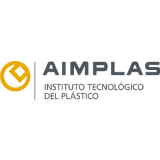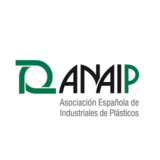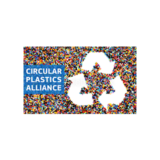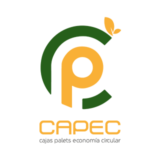
Engineering Plastics
Engineering plastics are synthetic materials of a polymeric nature, composed of organic molecules that offer higher performance than standard materials. They are therefore optimal for technical applications that require high-performance plastics with properties such as dimensional stability, durability, resistance to impact and extreme temperatures, and tolerance to corrosion and chemicals.
Types of Engineering Plastics
Acrylonitrile Butadiene Styrene (ABS)
Acrylonitrile butadiene styrene is a hard, amorphous thermoplastic composed of three monomers: acrylonitrile, styrene and polybutadiene. The synergy of these monomers gives ABS a very diverse combination of properties, including resistance and stability to vibration or impact, even at low temperatures.
Polycarbonate (PC)
Polycarbonate is an amorphous polymer that belongs to the family of polyesters, which has a unique combination of strength, stiffness, toughness, excellent impact resistance and low crystallinity. PC is also easy to mould, machine and thermoform.
Polycarbonate PC is a type of technical plastic that is composed of carbon and carbonate polymers. Thanks to its unique molecular structure, this material is:
Resistant: withstands high impacts and high temperatures.
Translucent: Along with glass, Polycarbonate PC is one of the most transparent components available.
Lightweight: it is characterised by its low density.
Malleable: Polycarbonate PC is an easy material to process. It can be easily painted, sawed, drilled or bent.
Uses and applications of Polycarbonate
The uses and applications of Polycarbonate are as wide as the properties of this material. It can be found in the following production sectors:
Automotive industry: this component is used for the creation of windscreens, headlights, vehicle interiors, protective panels….
Construction and architecture industry: Polycarbonate is often used for the manufacture of windows, skylights, enclosures, roofing and cladding…
Electronics industry: this material is often used for the manufacture of mobile phone casings, but this is not its only use. Another application of polycarbonate in the electronics industry is the creation of screens for computers, tablets and other electronic devices. This is due to its optical clarity and high strength.
Medical industry: due to its sterilisation capacity and resistance to chemical products, one of the uses of Polycarbonate in the medical industry is the manufacture of equipment such as syringes, catheters, medicine containers, face masks, etc.Optical industry: one of the applications of Polycarbonate is the manufacture of impact resistant lenses, offering protection in industrial and sports environments.
Food industry: this material is used for the manufacture of packaging (bottles, drums, food storage containers…), kitchen utensils (spoons, spatulas, handles…) and food processors (mixers, hoppers, trays, protective covers…).
Storage and handling tips
If we want the Polycarbonate chippings to maintain their characteristics and properties at all times, it will be necessary to store them properly. These storage and handling tips will be useful:
Store in a dry place: polycarbonate PC should be stored in a dry and leak-free area to avoid moisture absorption and therefore the appearance of defects or damage to this material.
Protect from direct sunlight: This component is sensitive to ultraviolet light. Therefore, in addition to storing it in a place away from direct sunlight, we can use opaque containers or containers with covers to prevent the polycarbonate pellets from suffering alterations.
Control the temperature: although it is a highly resistant material, PC polycarbonate should be stored at an ambient temperature of between 20-25ºC.
Avoid contact with chemicals: It is important to store polycarbonate PC pellets away from aggressive chemicals or solvents, as these can cause adverse reactions in the material.
Labelling and inventory rotation: When working with different batches of polycarbonate PC, it is advisable to label them to avoid confusion. In addition, it is important to follow an inventory rotation system in order to use the oldest materials first and to maintain the freshness of the polycarbonate pellets.
What is the service life of polycarbonate pellets?
The service life of Polycarbonate PC is long and can exceed 20 years. This is due to its properties: it is wear, scratch and impact resistant and can withstand high temperatures.
Polyvinylchloride (PVC)
Polyvinylchloride is obtained by the polymerisation of the monomer vinyl chloride. It is a lightweight, stable, chemically harmless, inert and tough polymer. It is electrically and thermally non-conductive and is therefore considered a natural insulator.These characteristics make it an essential component for today’s industry.
- Versatile: depending on its composition, it can be transformed into a rigid or flexible component and can thus be used for a wide range of applications.
- Stable: it shows little change in its molecular structure and is therefore particularly suitable for the sanitary industry with high hygiene standards.
- Safe: this material does not burn easily and does not burn by itself. Two qualities that make it a completely safe material.
Types of Polyvinyl Chloride (PVC)
PVC comes in several types, each adapted to specific needs and conditions:
- Rigid PVC: as the name implies, this type of Polyvinyl Chloride is hard and tough. Among other applications, it is used for the manufacture of pipes, window and door profiles and other structural components.
- Flexible PVC: unlike rigid PVC, flexible PVC is soft and malleable. It can be seen in hoses, electrical cables, shower curtains and inflatable toys.
- Chlorinated PVC (CPVC): CPVC is a variant of PVC that is characterised by its increased resistance to high temperatures and chemicals. It can be seen in hot water piping systems and industrial applications that require resistance to corrosive chemicals.
- Foamed PVC: This type of PVC contains air bubbles that make it lighter and more insulating. It is used in the manufacture of building panels, signs and packaging materials.
Uses and applications of Polyvinyl Chloride (PVC)
Thanks to its properties and quality, PVC has a wide variety of uses and applications. Although it can be found in other industries, these are the main ones:
- Construction: as a light and extremely resistant material, one of the applications of Polyvinyl Chloride (PVC) is in construction. It is used for the manufacture of drinking water pipes, drainage systems, window and door profiles or floor and ceiling coverings. Another of its uses is the creation of insulating materials.
- Electrical industry: Due to its high dielectric strength and durability, PVC is used for the manufacture of electrical cables, electrical conduits and insulation.
- Automotive industry: another sector where PVC is used is the automotive industry. This is not surprising. Thanks to its durability and ease of cleaning, it is perfect for lining the interior of vehicles.
- Sanitary industry: as a stable and inert material, it can be used in areas where hygiene is a priority. This is the case in the healthcare sector, where it is used in the manufacture of medical tubing, blood bags and flexible medical devices.
- Advertising and signage: One of the materials used for the manufacture of signs and banners is Polyvinyl Chloride. It is durable and weather-resistant, but also easy to print on.
- Toys and inflatable items: PVC is not only characterised by its toughness, but also by its flexibility. Hence, other uses for polyvinyl chloride include the manufacture of inflatable toys, portable swimming pools and air mattresses.
Lifetime of Polyvinyl Chloride (PVC)
Although there are many properties of PVC, one of the best known is its durability and long life span. Under normal conditions, it can last for more than 50 years. Its resistance to corrosion, moisture and chemicals contributes to this longevity.
At the end of its useful life, Polyvinyl Chloride (PVC) can be recycled up to eight times and turned into a new resource.
How long does PVC last in the sun?
Although polyvinyl chloride can be exposed to the sun, its resistance to ultraviolet rays may vary depending on the type of PVC and the additive used in its manufacture. Taking these characteristics into account, we can say that rigid PVC is more resistant to ultraviolet radiation than flexible PVC.
However, over time and due to prolonged exposure to the sun, PVC may discolour and become somewhat brittle. To prolong its outdoor service life, the use of UV stabilising additives and paints that protect against solar radiation is recommended.
Thermoplastic polyurethane (TPU)
Thermoplastic polyurethane is a highly versatile elastomer with excellent conformability resulting from its chemical composition of hard and soft segments that give it rigidity and elastomeric properties respectively. TPU offers high resistance to oxygen, abrasion and low temperatures .














